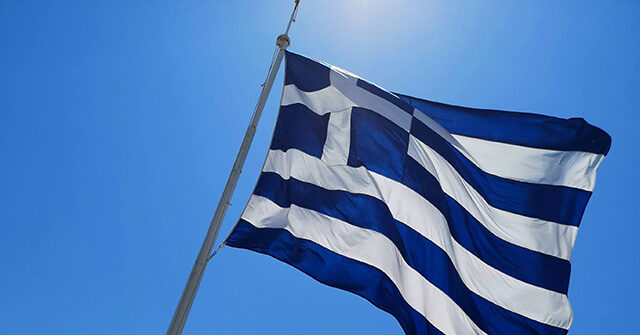A woman known as “Ambamelia” has recently come under fire after posting a viral TikTok video in which she mistakenly attacked a Greek gyro shop in New Jersey, believing it supported Israel. In the video—which has now garnered over four million views—she aggressively removed a banner featuring blue-and-white flags while shouting “Free Palestine.” The incident, which has sparked a considerable amount of debate and criticism, highlights the complexities surrounding public activism, social media, and the misunderstandings that can arise in politically charged contexts. Ambamelia’s actions and subsequent realization that the banners represented Greek flags rather than Israeli ones have contributed to the topic of cultural sensitivity and knowledge in activism.
In the footage, Ambamelia can be seen confronting startled employees of Efi’s Gyro in Montclair, hurling accusations about Zionism while tearing down the flags. The confusion escalates as the staff attempts to inform her that the flags are actually Greek, not Israeli. Upon learning this, Ambamelia expressed surprise, admitting her mistake in recognizing the flags. This interaction serves as a poignant display of how misinformation can lead to extreme actions and reactions, particularly within the heated political climate surrounding the Israeli-Palestinian conflict. The viral nature of the video has sparked discussions on social media about the responsibilities of influencers and activists in accurately representing their causes.
The business owner, Efi Mihalis, who launched Efi’s Gyro in 2021, spoke out about the event, clarifying that it was not a prank or staged event but rather an unexpected act of vandalism that left her employees stunned. Mihalis expressed dismay at the destruction of her property and highlighted the emotional impact of the event on her team. The incident raises important questions about the intersection of social media and real-world implications, particularly how actions captured on video can have lasting repercussions for individuals and businesses who are unintentionally caught in the crossfire of socio-political discourse.
In the aftermath of the viral video’s release, comments and reactions flooded in across various platforms, many pointing out Ambamelia’s glaring lack of knowledge regarding the flags and what they symbolize. Users reacted with embarrassment and disbelief, highlighting the necessity for individuals engaging in social activism to educate themselves about the cultural and political symbols they encounter. The comment section of the video became a microcosm of a larger conversation around cultural awareness, with many users bewildered by the TikToker’s fundamental misunderstanding. This incident serves to illustrate the importance of informed activism, where understanding the nuances of different cultures can prevent harmful misinterpretations.
The choice to post the video several months after the incident has also drawn attention, as observers questioned Ambamelia’s motives. While it can be argued that she might have sought to share a humorous or relatable story, the implications of her actions raise ethical concerns about the glorification of such behaviors on social media platforms. By presenting the video without context or reflection, Ambamelia contributes to a culture of performative activism, where the theatrics can overshadow substantive discussions about justice and solidarity.
Overall, this incident encompasses a broader dialogue about the responsibilities of individuals participating in social movements, the consequences of misrepresentation, and the crave for virality on platforms like TikTok. As social media continues to shape public perceptions of issues like the Israel-Palestine conflict, it is crucial for users to engage thoughtfully with the subjects they discuss and represent. The unraveling of Ambamelia’s viral incident acts as a cautionary tale about the interplay between activism and knowledge, emphasizing the need for greater awareness and understanding among those who wish to vocalize their support for global causes.

